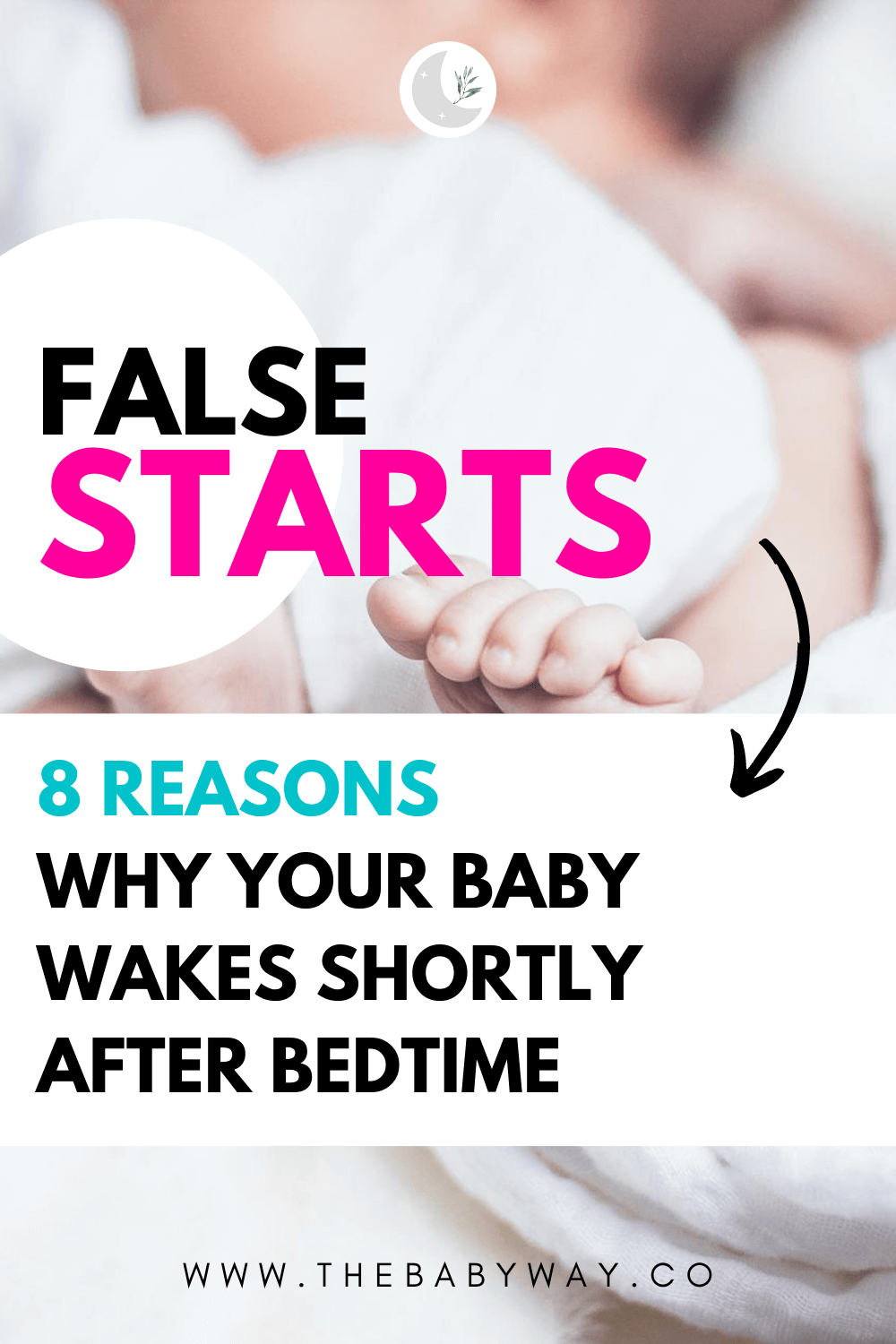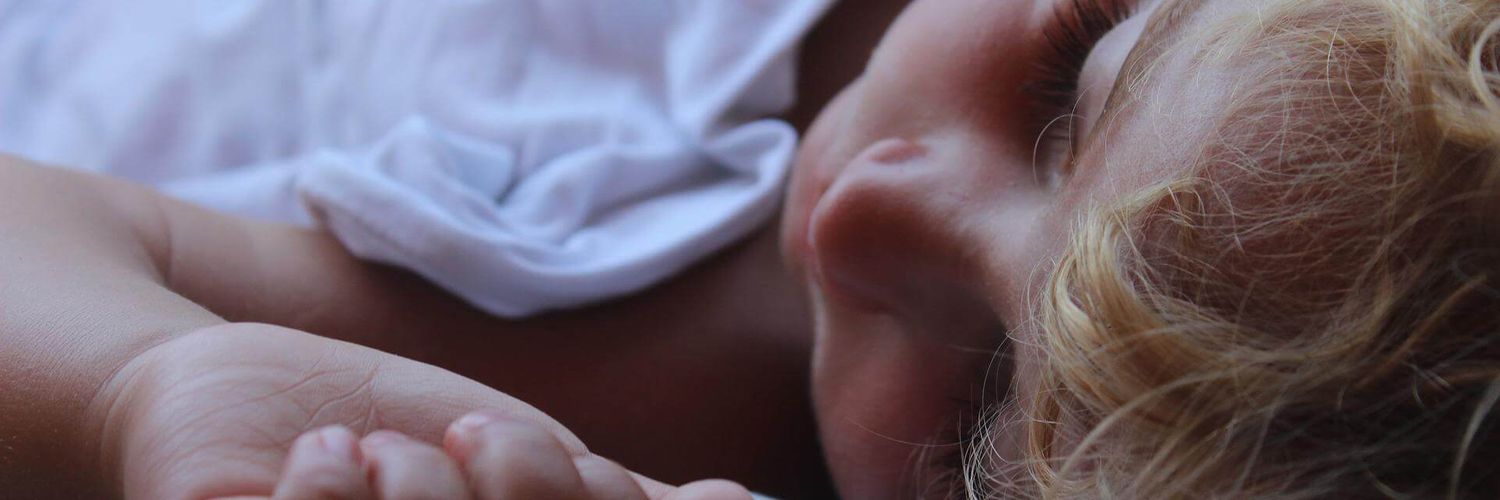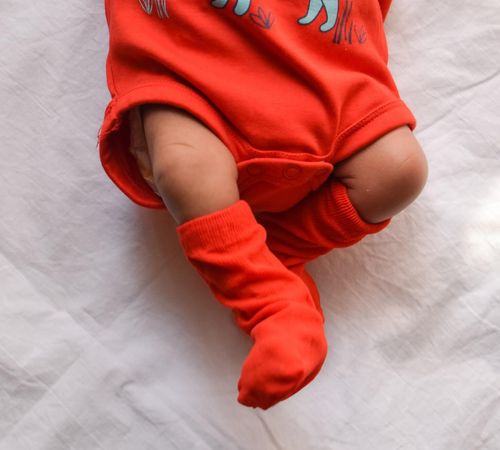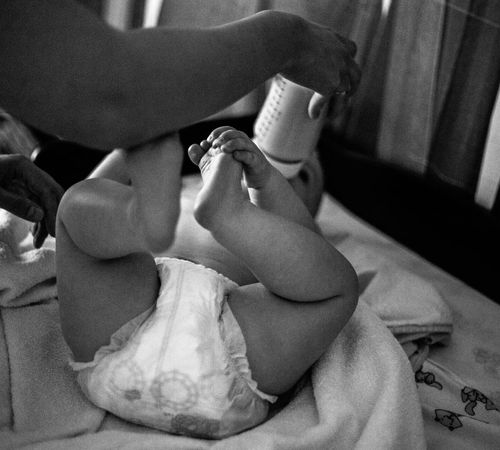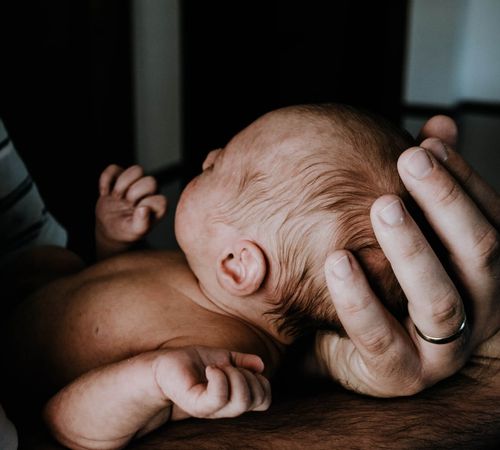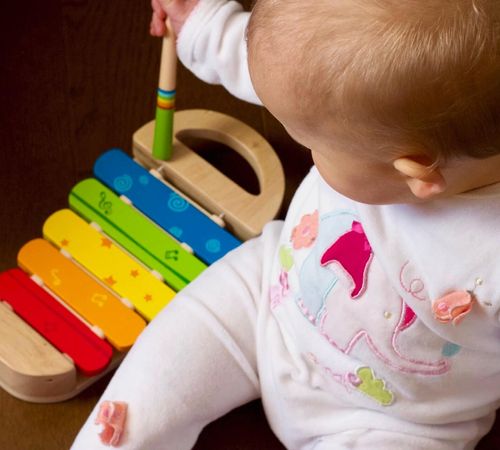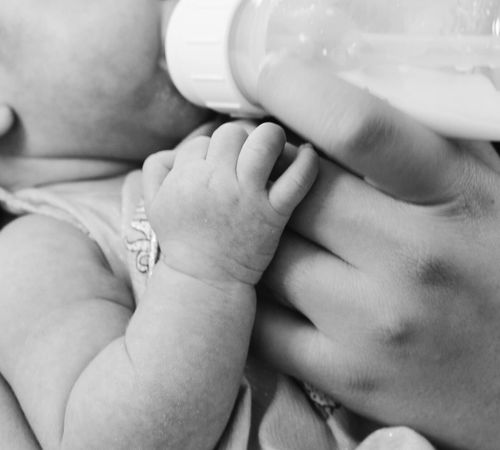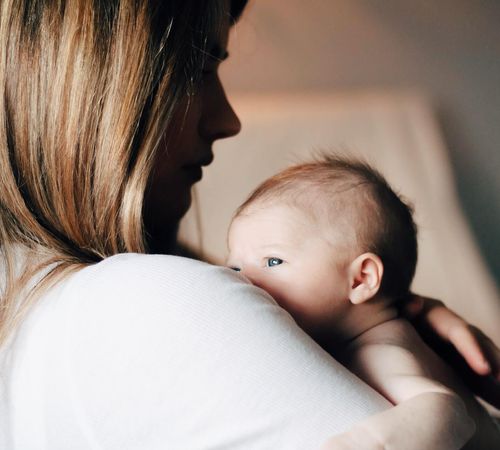Eight Reasons Why Your Baby Wakes Up Shortly After Going To Bed And What To Do About It
I got my baby ready for bed. She is finally asleep, and I fall on the couch, all exhausted. Suddenly, I hear her crying. My husband and I exchange looks.
WE ARE SCARED.
Did she just wake up? We literally just put her to bed 5 minutes ago! What is going on?
So here we go again, trying to get her back to sleep...
Does this scenario sound familiar to you? Or are you even holding that said baby at this very moment and reading this, totally desperate for answers?
Many parents are trying to solve the mystery of their little one waking 30-45 minutes after bedtime. It is not an uncommon sleep problem many parents have to face at one time or another. Sometimes even for a longer period.
If you need more in detail help with your baby's sleep challenges, check out our sleep program! You will find 200+ pages of information and sample schedules to improve your baby's sleep naturally and without crying.
What Are False Starts At Bedtime?
If your baby wakes 30-45 minutes after going to bed, we refer to it as a false start. Some also call it the 45-minute intruder, even though this term is more frequently used for a short nap, aka the cat nap.
Babies cycle through REM sleep and non-REM sleep much faster than adults. REM sleep or also known as active sleep is light sleep, and babies wake much easier. Non-REM sleep, also called quiet sleep, is deep sleep, and it's more difficult to wake a sleeping baby. A baby's sleep cycle ends after around 45 minutes in light sleep, and then they start a new sleep cycle.
If your baby is waking after 45 minutes, it's because their first sleep cycle has ended but instead of starting a new sleep cycle, they fully wake up.
This can also happen during nap time. In this article, we will take a closer look at false starts after bedtime.
If you want to learn more about baby naps and how to achieve a longer nap, make sure to read the article below.
Why Does My Baby Keep Waking Up 30-45 Minutes After Bedtime?
There are various reasons why your baby might wake up shortly after bedtime.
1. Overtiredness
This is the most common cause of wakings shortly after bedtime. When your baby is too tired, it can cause more frequent wakings as their cortisol levels are still very high during sleep. High cortisol levels make it hard for your baby to stay asleep when a new sleep cycle starts; as a result, they wake up fussy, crying, or even angry.
The Fix:
In this case, you should try to get your baby to sleep earlier. Try a shorter wake window between the last nap and bedtime to prevent overtiredness, and always watch for tired signs. If your baby has early morning wakes and wakes up grumpy in the morning as well, it can also be a sign that they are overtired.
2. Undertiredness
Just as babies can be overtired, they can also be undertired. If the last wake window was too short or your baby has too much daytime sleep overall, your baby was probably not tired enough at bedtime. They have not built up enough sleep pressure to keep sleeping. They might wake up brabbling and happy. And getting them back to sleep can be a real challenge.
The Fix:
Make sure your baby gets enough stimulation during the day. Offer enough activities that will fill their emotional and sensory cup. Keep an eye on age-appropriate wake windows and adjust your nap schedule if necessary.
3. Too Early Bedtime
If you have a very young baby (up to 3 months), a later bedtime often works much better. Otherwise, they are running the risk of confusing bedtime with a nap. Their circadian rhythm is still developing, and they are learning to differentiate between day and night. At this age, many babies still sleep more during the day than at night.
A nap transition can also lead to an early bedtime. Your baby just dropped a nap, and they get tired very early in the evening as a result.
The Fix:
If bedtime is too early, your baby might perceive it as another nap. Try a later bedtime and increase the awake time between the last nap and bedtime. As your baby gets older, you can gradually push bedtime back.
4. Environmental Reasons
A sleep-inducing environment will help your baby sleep better. When they are starting a new sleep cycle, they switch from deep sleep to light sleep and are much more perceptive to any sleep disruption. For example, it may be too bright, or they are cold. Anything that disturbs them a little bit can lead to a full waking. Also, the younger the baby, the easier they wake from outside disturbances.
The Fix:
Make sure you create the right sleep environment for your baby. Use black-out curtains to prevent any unwanted light from coming in. Check the room's temperature and use a sleep sack. Use white noise to mask any other noises in the house that could potentially wake your baby.
5. A Sleep Regression
Sleep regressions can be another cause of regular wakings. Especially the 4-month sleep regression calls for the prime time of bad sleep. Yay!
The Fix:
Sleep regressions are often a time of pure survival. They can really mess with your little one's sleep. But the good news is that they also pass. Babies need to adjust to many new changes during a sleep regression. The best thing you can do is get them the sleep they need and help them through this phase.
6. Hunger
If you have a baby younger than 4 months, hunger might be a possible cause for an early waking. Instead of looking at the time, your baby fell asleep, check the last time you fed them. 2 hours between feedings is already a long time for young infants. Even if you are nursing your baby to sleep, they aren't necessarily drinking well. Sometimes they are only sucking slightly or are too tired to take a full feed.
The Fix:
Don't switch to a bottle or force-feed your baby so they will sleep longer. When you have a last full feed 30-45 minutes before they fall asleep, you usually can rule out hunger. But whenever you are unsure whether your baby is hungry, go ahead and definitely feed them. You should not have to wonder if they are hungry or not. Many mothers feel much better when they feed their baby.
7. Food Sensitivities
If your baby is a quite restless sleeper in general or they wake hourly at night, I would take a closer look into possible food sensitivities or allergies. This especially applies to exclusively breastfed babies. For babies older than 6 months, low iron levels can also be a cause for poorer night sleep.
The Fix:
If you notice any other signs of discomfort, such as your baby arching their back, a lot of gas, or reflux, consult your pediatrician.
8. Habit Of Waking
In some cases, the habit of waking can be a cause for wakings shortly after bedtime. This can happen if your baby has false starts for an extended period of time. Their body gets used to waking at the exact same time every night. Some parents can pinpoint the time their baby is going to wake. Now, besides the fact that it is actually frustrating, isn't it also amazing how our body's internal clock works so accurately?
The Fix:
Breaking a habitual wake is not an easy task. But it's not impossible. If you have ruled out all other possible causes and you are sure that your baby is waking out of habit, then you can try to break this habit by resettling in another way. Since I don't promote letting your baby cry it out, this will take time and dedication. You can gently try to get your baby used to falling back to sleep in the crib instead of rocking or nursing, for example. But remember, it can take much longer, and some parents find supporting back to sleep works much easier and faster. You just have to figure out what works best for you and your baby.
I will also point out that at some point, most babies will outgrow this behavior naturally by themselves. I know that every sleep consultant is probably shaking their head in disbelief now, but it's true. If the cause for the night waking is habitual or a need for comfort (which is also a valid need at any age), babies will usually stop with false starts after 8-9 months. This is also the time cat naps typically stop.
What To Do When False Starts Are Continuously Happening
False starts will happen every now and then. It's a normal part of your baby's sleep pattern. And it can be a balancing act to find the right time to put baby to bed.
But if false starts are continuously happening, you should investigate the possible reasons. If your baby continues to wake hourly during the whole night, it can be a red flag. There might be something else going on or disturbing them. If, after a false start, they sleep for a longer stretch (2 hours or more), then your root cause might be related to the amount of daytime sleep they get and under-or overtiredness.
Does My Baby Need to Learn Independent Sleep?
There is this widespread belief that false starts are mostly happening with babies who do not fall asleep independently. However, even babies that are always supported to sleep by nursing, rocking, or whatever, are able to sleep for 1.5-2 hours at least. If your baby is waking every 60 minutes or less, chances are it is not because of a sleep association or a sleep prop. There is something else is going on, and you need to figure out what.
While healthy sleep habits are important and can promote better nighttime sleep, sleep training or independent sleep will not help with false starts. You will see many babies that are able to settle themselves to sleep but still wake up shortly after bedtime. There are often other underlying reasons that cause your baby to wake so soon. Before you think about teaching your baby independent sleep, you better rule out that none of the other reasons above are causing regular false starts.If you are adjusting your sleep schedule or bedtime, it can take some time until your baby gets used to it. You might still experience false starts for a week or so.
